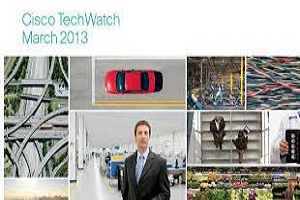March 23, 2013
The resistance to flexible working is entirely reasonable
 In recent media coverage of the decision by Yahoo to ban homeworking as well as a recent survey from Microsoft, the resistance to the idea that people work better when they are allowed to work flexibly has typically been put down to cultural inertia. Sometimes those who have resisted the uptake of flexible working have been portrayed as dinosaurs. While there’s no question that culture and management attitudes do create barriers to the uptake of flexible working, there is a growing recognition that certain flexible working practices may not be appropriate for many people and organisations and even specific sectors. The barriers may be there for a good reason.
In recent media coverage of the decision by Yahoo to ban homeworking as well as a recent survey from Microsoft, the resistance to the idea that people work better when they are allowed to work flexibly has typically been put down to cultural inertia. Sometimes those who have resisted the uptake of flexible working have been portrayed as dinosaurs. While there’s no question that culture and management attitudes do create barriers to the uptake of flexible working, there is a growing recognition that certain flexible working practices may not be appropriate for many people and organisations and even specific sectors. The barriers may be there for a good reason.







 Less than half of organizations worldwide actively apply the basic elements of a health management programme, with just a third having a formal strategic plan for health and wellness. This is according to Mercer’s Talent Barometer research which explores key accelerators of talent effectiveness – education, health and wellness, and career experience – and their impact on successful workforce practices. While employers are investing in talent, with 60 per cent of organizations increasing spending in this area in recent years, only 24 per cent say their current plans are highly effective in meeting immediate and long-term human capital needs.
Less than half of organizations worldwide actively apply the basic elements of a health management programme, with just a third having a formal strategic plan for health and wellness. This is according to Mercer’s Talent Barometer research which explores key accelerators of talent effectiveness – education, health and wellness, and career experience – and their impact on successful workforce practices. While employers are investing in talent, with 60 per cent of organizations increasing spending in this area in recent years, only 24 per cent say their current plans are highly effective in meeting immediate and long-term human capital needs.
 Amidst all the controversy over flexible working raised by the infamous Yahoo homeworking ban comes US research revealing homeworking policies lead to happier employers and employees. 93 percent of employees surveyed by
Amidst all the controversy over flexible working raised by the infamous Yahoo homeworking ban comes US research revealing homeworking policies lead to happier employers and employees. 93 percent of employees surveyed by 

















March 26, 2013
Where are the muggles in Terry Farrell’s architecture policy review?
by Mark Eltringham • Architecture, Comment, Facilities management, News, Property
More →